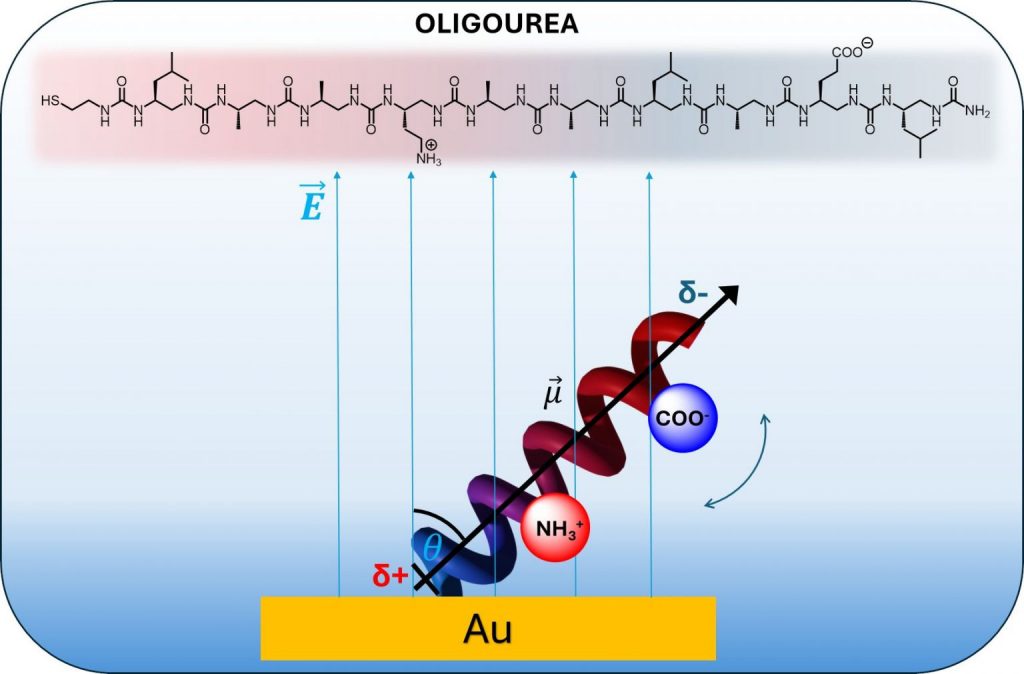Article in ACS Applied Materials & Interfaces (2024)
27 06 2024
Research team from the University of Warsaw’s Faculty of Chemistry, led by Sławomir Sęk and Karolina Pułka-Ziach, have shared findings in the journal ACS Applied Materials & Interfaces about a unique behavior in organic molecular films known as the inverse piezoelectric effect.
The described studies focus on the development of monolayers composed of helical oligoureas—unique molecular structures that exhibit responsive properties to external stimuli, such as electric fields. The exceptional piezoelectric response of the oligourea films results from the molecules’ ability to reorient upon changes in voltage applied to the metallic substrate supporting the monolayer. This feature is not only fascinating for basic science but also useful for making new types of thin, responsive films for nanotechnology devices like actuators or sensors. These devices can operate very precisely, even at scales smaller than a nanometer, which could lead to groundbreaking advancements. The study underlines the innovative work being done at the Faculty of Chemistry, University of Warsaw.
Arkadiusz Grempka, Damian Dziubak, Anna K. Puszko, Paulina Bachurska-Szpala, Maxim Ivanov, Paula M. Vilarinho, Karolina Pulka-Ziach*, and Slawomir Sek* ACS Appl. Mater. Interfaces 2024, 16, 24, 31817–31825. DOI: https://doi.org/10.1021/acsami.4c04767
Link: https://pubs.acs.org/doi/10.1021/acsami.4c04767

